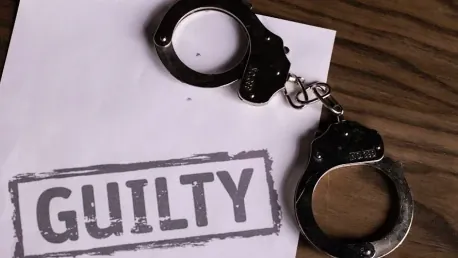Arizona voters are set to decide on Proposition 314, a measure that could significantly impact the state’s approach to immigration enforcement, enabling local police to arrest individuals suspected of illegally entering from Mexico. Traditionally, immigration enforcement falls under federal jurisdiction, but this proposition places Arizona among a few states testing the limits of local powers in immigration control. Other states such as Texas, Iowa, and Oklahoma have passed similar laws, though these measures were halted by federal courts. The outcome of this vote will not only have local repercussions but also contribute to the broader national dialogue on state versus federal authority.
The history of immigration politics in Arizona adds a layer of complexity to Proposition 314. Over the years, the state has enacted various laws to involve local authorities in immigration control, which often sparked significant controversy. For instance, a 2005 human smuggling ban and a 2007 employer sanction law set significant precedents. The infamous 2010 law mandating police to check immigration status during other law enforcements drew widespread criticism and legal challenges. Proponents argue that Proposition 314 is essential for border security, especially given the Biden administration’s immigration policies, which they claim have led to increased illegal crossings. They believe local law enforcement can play a crucial role in mitigating this crisis.
Proponents’ Viewpoint on Border Security
Proponents of Proposition 314, mainly Arizona GOP lawmakers, argue that the measure is a necessary step for ensuring border security and addressing what they describe as a failure of federal policies. According to them, the increase in illegal immigration under the Biden administration necessitates local involvement in enforcement to aid in mitigating the crisis. The proposition is structured so it would not be enforceable until a similar law in another state has been active for at least 60 days. This stipulation aims to ensure that the measure aligns with precedent and legal standards established by other states’ experiences.
Supporters believe that giving local law enforcement more power to address illegal immigration will help manage the situation more effectively. They argue that local police officers, being more familiar with their communities, can provide quicker and more context-specific responses to immigration issues. Moreover, proponents claim that this measure would deter illegal crossings by increasing the risk of arrest and deportation. They emphasize that the proposition includes clauses to protect officers from civil lawsuits, thus encouraging active enforcement without fear of litigation. Advocates also highlight that the proposal includes stringent measures against crimes associated with illegal immigration, such as trafficking fentanyl and submitting false documents for employment or benefits.
Opponents’ Concerns and Historical Context
However, the proposition has drawn significant opposition from various quarters, including civil rights groups and some political leaders. Critics argue that similar laws in the past have led to racial profiling and damaged Arizona’s reputation. They recall the tenure of former Maricopa County Sheriff Joe Arpaio, whose practices led to widespread allegations of targeting Latinos. In 2013, a federal judge ruled against Arpaio, resulting in hefty legal and compliance expenses that fell onto taxpayers. Opponents fear that Proposition 314 could trigger similar issues, potentially leading to costly legal battles and eroding trust in law enforcement within immigrant communities.
Opponents also raise concerns about the potential economic impact of the measure. Arizona’s economy relies significantly on industries that employ a large number of immigrants, both documented and undocumented. Enacting strict immigration enforcement at the local level could lead to labor shortages, particularly in sectors such as agriculture, construction, and hospitality. Furthermore, the community’s trust in local law enforcement could be undermined if residents fear being unjustly targeted based on their appearance or ethnicity. Critics argue that this could make it more difficult for police to perform their duties effectively, as individuals may be less likely to report crimes or cooperate in investigations.
Legal Viability and Future Implications
Arizona voters will soon decide on Proposition 314, a measure that could reshape the state’s role in immigration enforcement by permitting local police to arrest those suspected of illegally crossing from Mexico. Immigration enforcement traditionally falls under federal control, but this proposal tests how far state powers can stretch. Other states like Texas, Iowa, and Oklahoma have enacted similar laws, though federal courts have stopped these measures. The outcome of Proposition 314 will affect Arizona locally and add to the national debate on state versus federal authority in immigration matters.
Arizona’s history with immigration laws adds depth to this issue. Over the years, it has passed several laws involving local authorities in immigration enforcement, often sparking debate. Notable examples include a 2005 human smuggling ban and a 2007 employer sanction law. The controversial 2010 law requiring police to check immigration status during other law enforcement actions faced widespread criticism and legal battles. Supporters of Proposition 314 argue it is crucial for border security, especially given the Biden administration’s policies, which they claim have led to a rise in illegal crossings. They believe local law enforcement could play a vital role in managing the situation.









